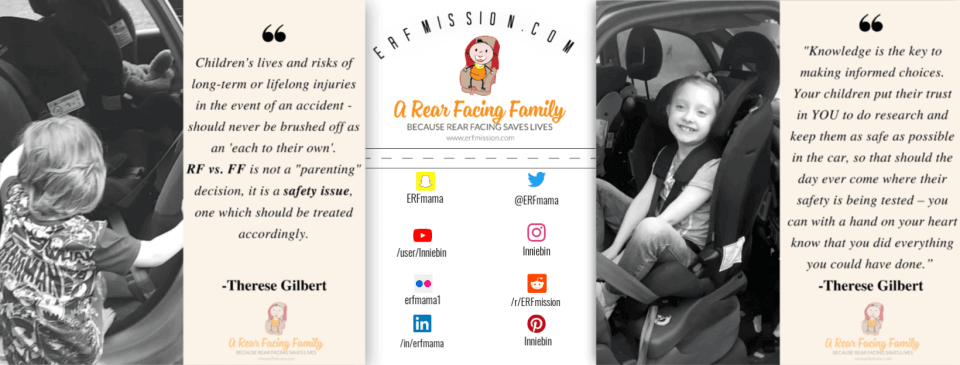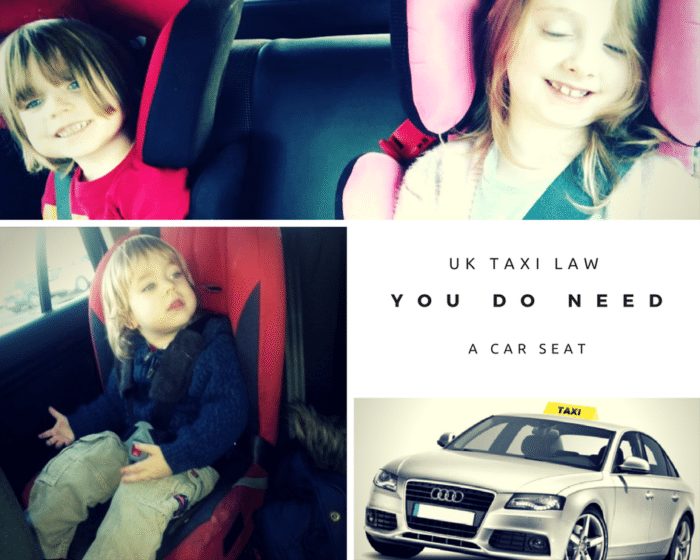UK Taxi Law Requires You To Use a Car Seat
Despite popular belief by the common man – a normal taxi is not exempt from car seat use.
The difference lies in the distinction between a licenced taxi and a public hire vehicle (PHV). Most taxis that pick us up at home when we order a taxi – is a PHV. Ergo you do need to bring your car seats!
To be fair – the government website is seriously lacking in information on the subject, and it’s really easy to misunderstand. This is one of the reasons I believe most people actually think that in the UK – you don’t need a car seat in a taxi. Which is utter bullocks because a taxi is a car, and all children should always use a car seat when they travel in a car.
The gov.uk website states:
When a child can travel without a car seat:
A child can travel without a child car seat in some circumstances.
Taxis and minicabs (private hire vehicles):
If the driver doesn’t provide the correct child car seat, children can travel without one – but only if they travel on a rear seat:
- and wear an adult seat belt if they’re 3 or older
- without a seat belt if they’re under 3
The problem here, though – is that they have put in the wrong information.
Minicab is a PHV and Taxis are a ‘Licensed Taxi’ or ‘hackney carriages’.
A car seat is only exempt in the case of a ‘Licensed Taxi’! A licenced taxi is like a ‘London Black Cab’, it always has a fixed partition!
A public hire vehicle (PHV) however, which is what we tend to call a Minicab, is in the eyes of the law no different to any other car, according to the Public Carriage Office in London.
Despite popular belief by the common man - a normal taxi is not exempt from car seat use? #taxi #travel Share on XThe PCO had this to say on the subject:
” There is definitely a distinction between a licenced taxi and a public hire vehicle. A licenced taxi like a London black cab always has a fixed partition and is therefore exempt. A public hire vehicle, however, which is what we tend to call a minicab, is in the eyes of the law no different to any other car. So no exemption for car seats! The driver is responsible and should refuse a customer with a child who has no seat or provide a seat themselves.
The man from the PCO described the difference as ‘Licenced Taxis’ (LT) and ‘Public Hire Vehicles'(PHV). An LT is a Taxi like London’s Black Cabs and they have fixed partitions. A PHV is a normal car, it has no fixed partitions.
Did you know?
Taxis (or ‘hackney carriages’) are available for immediate hire and can be hailed in the street (known as ‘plying for hire’). Taxis can also accept pre-bookings. Private hire vehicles (PHVs) (sometimes known as ‘minicabs’) must be pre-booked and cannot use taxi ranks. It is illegal for PHVs to ply for hire.
Accidents still happen when in a Taxi!
Being driven by a Taxi is a great service, I’m not saying it isn’t. It’s a service that greatly helps keep us safe after a night out in the city, to the pub or when we are unable to drive ourselves either because we simply don’t have a car – or because we’re intoxicated.
But when you order a taxi, it’s not a magic pumpkin. It’s not going to miraculously take you to your destination without any fear of incident or accident.

Common taxi-related accidents include:
- Road accidents caused by careless driving
- Incidents involving cyclists or pedestrians
- Collisions with other vehicles
Taxi and private hire vehicles statistics, England: 2015
Every day in the UK

Great Britain.
Every day in the UK – an average of 5 people die as a result of a road accident and 61 are seriously injured.
Last year there were 1,732 fatalities, 755 involved a car and 3% of all fatalities…are children!
Three out of 10 crashes happened less than a mile from home.
Something to think about….?


Therese has completed the ‘Advanced Child Car Seat Training Course’ at TRL (Transport Research Lab) and is a CPD accredited car seat expert. She blogs about in-car safety, car seats, tips, reviews, giveaways and advice. She’s a mum on a mission to change the law and raise awareness. She is also a breastfeeding advocate and gentle parenting promoter who loves cloth nappies, baby-wearing, BLW and co-sleeping/bed-sharing.

